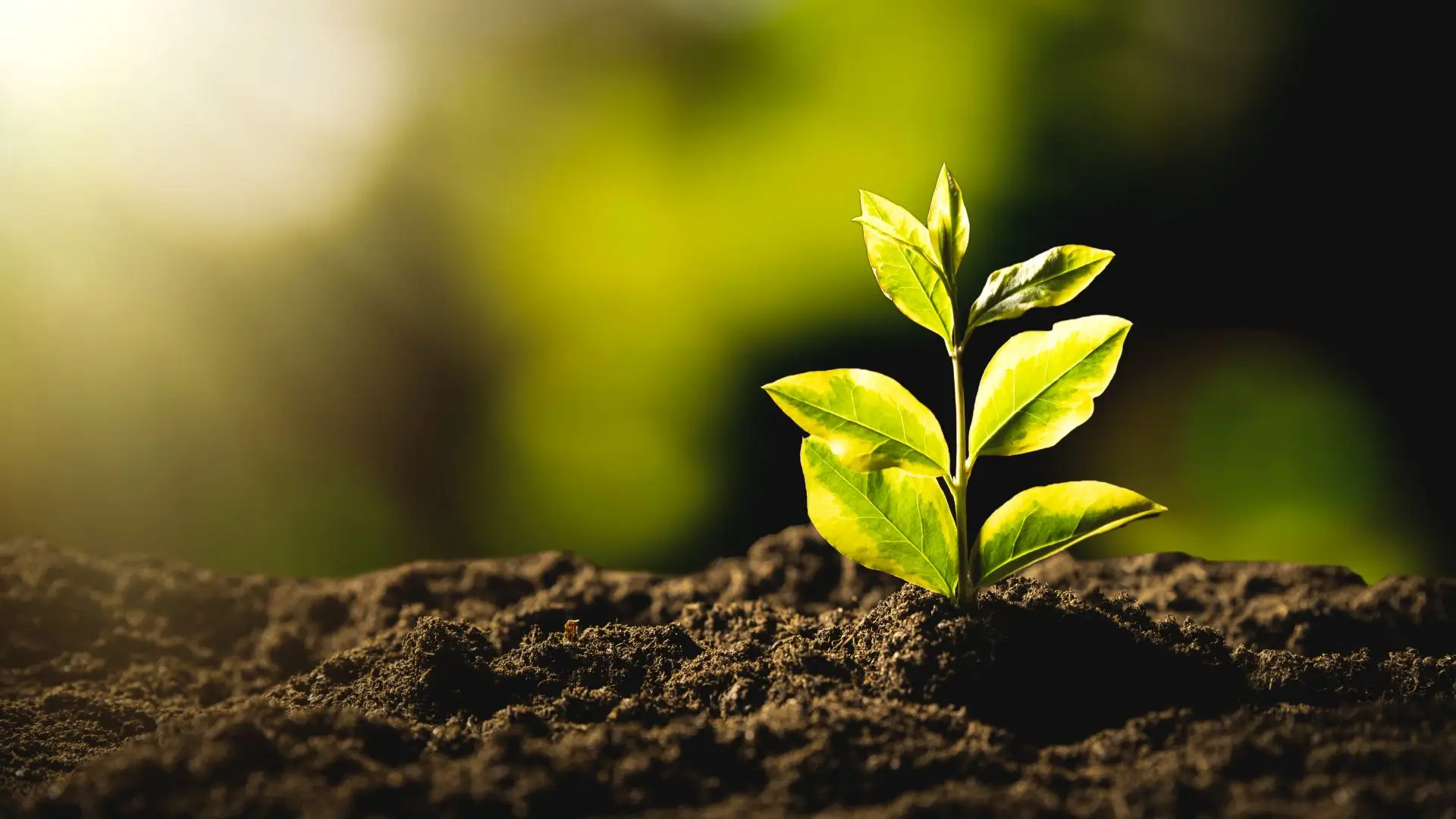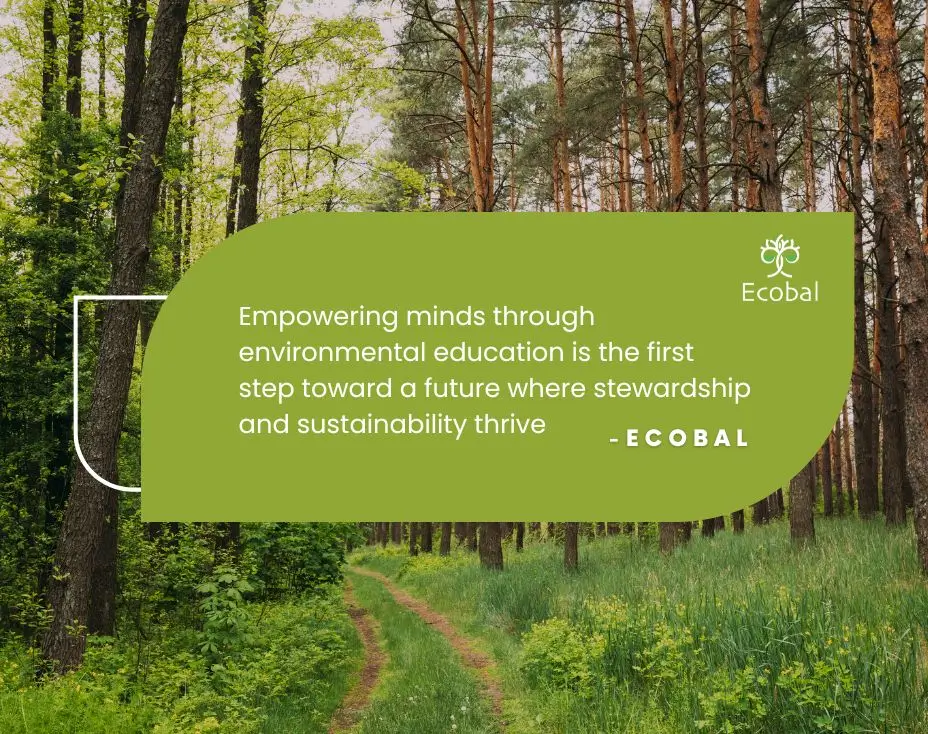The Role of Environmental Education: Fostering a Culture of Environmental Stewardship
Environmental education (EE) is increasingly recognized as a critical component in fostering a culture of environmental stewardship among future generations. The importance of EE can be highlighted through several key roles it plays in society.

Empowerment and Knowledge Acquisition
EE equips individuals with the knowledge necessary to understand and address pressing environmental challenges such as climate change, biodiversity loss, and resource depletion. Research shows that students who participate in EE programs demonstrate improved academic performance, enhanced critical thinking skills, and increased motivation to engage in environmental stewardship (Stanford University, 2021).
Encouraging Pro-Environmental Behaviors
By integrating ecological principles into the curriculum, educational institutions can foster an appreciation for the natural world. Studies have shown that students who receive environmental education are more likely to engage in sustainable behaviors such as recycling, conserving energy, and participating in community clean-up efforts (EPA, 2023). In addition, EE has been found to reduce climate anxiety among students by providing them with a clearer understanding of environmental mechanisms and empowering them to take action (Earth.org, 2023).
Developing Critical Skills
EE fosters essential skills such as problem-solving and teamwork that are critical to preparing students to tackle complex global challenges. Research shows that higher levels of education correlate with increased environmental awareness and engagement in pro-environmental behaviors (Garg & Dhiman, 2022). Thus, investing in EE is not just an academic endeavor; it is a critical strategy for fostering informed citizens capable of advocating for policies that promote sustainability and protect vulnerable ecosystems.
Community Engagement and Resilience
Environmental education contributes significantly to community resilience and capacity building. Programs designed around local environmental issues encourage students to engage with their communities while developing practical solutions to real-world problems. Successful EE initiatives often involve partnerships with local organizations and scientists to address specific environmental challenges facing communities. These collaborations empower students to take direct action through community service projects or conservation efforts.
Experiential Learning
An emphasis on experiential learning in which students participate in hands-on activities such as tree planting or habitat restoration has been shown to deepen their connection to the environment and strengthen their commitment to stewardship (Wu et al., 2023). When students are actively engaged in meaningful projects that benefit their communities and ecosystems, they develop a sense of ownership over local environmental issues.
Alignment with the Sustainable Development Goals (SDGs)
The importance of EE is underscored by its role in advancing the Sustainable Development Goals globally. Education is recognized as a key driver for achieving SDG 4 (quality education) and SDG 13 (climate action), which emphasize the need for inclusive and equitable quality education that fosters lifelong learning opportunities related to sustainability. By integrating sustainability principles into educational frameworks at all levels, from primary schools to universities, educators can cultivate a generation of environmentally literate individuals who are equipped to make positive contributions to society.
Long-Term Impact on Environmental Quality
Research consistently shows that regions with higher levels of educational attainment have better environmental quality outcomes (Golub, 2015). This correlation suggests that investments in EE not only benefit individual learners, but also have far-reaching implications for community wellbeing and ecological health.
Why It Matters for Ecobal
At Ecobal, we are committed to staying at the forefront of technological advancements in CO2 sequestration. By integrating cutting-edge technologies such as ultra-fast CO2 hydrate formation, we enhance our efforts to transform former agricultural or barren lands into thriving ecosystems.
Ecobal has achieved significant milestones, including:
- Establishing Nature Spots in five different EU countries: France, Italy, Poland, Spain, and Romania.
- Managing 155 hectares of Nature Spots across the EU, storing 1,581 tons of CO2 and releasing approximately 1,150 tons of oxygen per year.
This ensures that our projects not only effectively sequester CO2 but also contribute to sustainable biodiversity conservation.
Ecobal’s Mission
- Raise awareness and establish authority to certify the ecological health and capacity of rural and natural landscapes.
- Monetize ecosystem services to demonstrate the economic value of nature.
- Use natural ecosystems as efficient carbon sinks for CH₄ and CO₂ sequestration and biodiversity conservation.
- Turn CO₂ and CH₄ from a challenge into valuable and tradable commodities.
- Manage soil microbiota and fauna to improve soil health and ecosystem functionality.
- Restore biodiversity through the reintroduction and conservation of native species.
Conclusion
EE is critical to fostering a culture of environmental stewardship among future generations. By increasing understanding of ecological principles and promoting sustainable practices, EE empowers individuals to take informed actions that benefit their communities and the planet. The integration of experiential learning and community engagement fosters a sense of responsibility for local environmental issues. As global sustainability challenges grow, prioritizing EE in education systems is essential to equipping future leaders with the skills to advocate for effective environmental policies. Investing in EE initiatives will help create a generation dedicated to protecting the planet for years to come.
About the Author
This article is written by Dr. Amisalu Milkias, Ecobal’s CO2 Project Specialist. Dr. Milkias specializes in carbon sequestration, restoration ecology, and environmental education, advocating for sustainable practices and fostering community engagement to promote ecological health.
Selected sources
- Wu, Y., Wan, J., & Yu, W. (2023). Impact of environmental education on environmental quality under the background of low-carbon economy. Frontiers in Public Health, 11, 1128791.
- Golub, T. P. (2015). The role of education in sustainable development. Advanced Education, 13-17.
- Garg, M., & Dhiman, M. (2022). Impact of Environment Education in Shaping Environmental Knowledge, Concern and Behavior. Indian Journal of Distance Education, 1.


